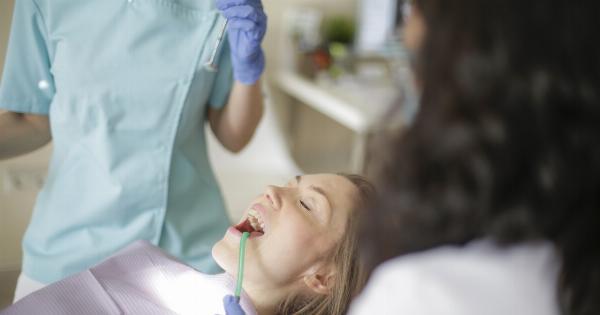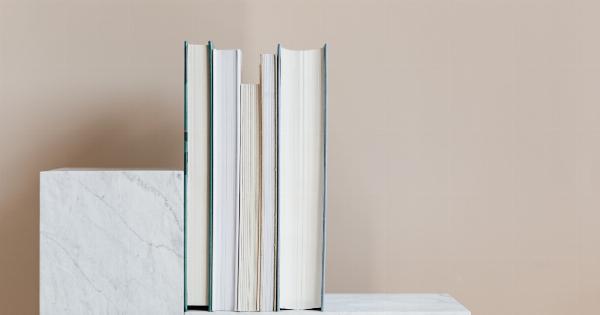Beauty rituals are some of the most common activities we indulge in to look our best. However, not all beauty rituals are good for our health. Some of them can actually cause harm, and many people don’t even realize it.
Here are 30 beauty rituals that can be harmful to your health:.
1. Tanning
Tanning, especially through indoor tanning beds, can be extremely harmful to your health. It increases the risk of skin cancer and premature aging.
2. Acrylic Nails
Acrylic nails can damage your natural nails and cuticles. They can also trap harmful bacteria, leading to infections.
3. Lip Injections
Lip injections can cause allergic reactions, infections, and swelling. Additionally, the long-term effects of these injections are not yet known.
4. Chemical Peels
Chemical peels can damage the skin, cause irritation, and increase sensitivity to the sun. They should only be performed by a qualified professional.
5. Hair Coloring
Hair coloring products contain chemicals that can be harmful to your scalp and hair. They can also increase the risk of cancer.
6. Eyelash Extensions
Eyelash extensions can cause allergic reactions, infections, and eye irritation. They can also damage your natural lashes.
7. Chemical Hair Straightening
Chemical hair straightening can damage your hair and scalp. It can also cause hair breakage and hair loss.
8. Teeth Whitening
Teeth whitening products can cause tooth sensitivity, gum irritation, and even permanent damage to your teeth and gums.
9. Botox Injections
Botox injections can cause allergic reactions, infections, and even paralysis in rare cases. The long-term effects of these injections are not yet known.
10. Hair Extensions
Hair extensions can damage your natural hair and scalp. They can also cause hair breakage and hair loss.
11. Over-washing Your Face
Over-washing your face can strip away its natural oils, leading to dryness, irritation, and premature aging. It is recommended to wash your face no more than twice a day.
12. Over-exfoliating
Over-exfoliating can damage the skin, cause irritation, and increase sensitivity to the sun. It is recommended to exfoliate no more than once a week.
13. Sleeping with Makeup On
Leaving your makeup on overnight can clog your pores and lead to breakouts. It can also cause premature aging and damage to your skin.
14. Using Expired Products
Expired beauty products can contain harmful bacteria and chemicals. They can also cause allergic reactions and skin irritation.
15. Using Harsh Products
Harsh beauty products can damage your skin and hair, causing dryness, irritation, and premature aging. It is recommended to use gentle products that are suitable for your skin and hair type.
16. Not Removing Hair Correctly
Not removing hair correctly, such as using dull razors or waxing incorrectly, can lead to skin irritation, ingrown hairs, and even infections.
17. Using Hot Tools Incorrectly
Using hot tools, such as curling irons and flat irons, incorrectly can damage your hair and scalp, causing dryness, breakage, and even burns.
18. Ignoring Skin Changes
Ignoring skin changes, such as new freckles, moles, or rashes, can lead to skin cancer and other serious health issues. It is important to regularly check your skin and consult a dermatologist if you notice any changes.
19. Using Nail Hardeners
Nail hardeners can damage your natural nails and cuticles. They can also cause yellowing and breakage.
20. Using Strong Perfumes
Strong perfumes can cause headaches, nausea, and allergic reactions. They can also irritate the skin and lungs.
21. Using Toothpicks
Using toothpicks incorrectly can damage your gums and even lead to infections. It is recommended to use floss or interdental brushes instead.
22. Not Removing Eye Makeup Correctly
Not removing eye makeup correctly can lead to eye irritation, infections, and even vision problems. It is recommended to use a gentle eye makeup remover and avoid rubbing the eyes.
23. Picking at Your Skin
Picking at your skin can lead to scarring, infections, and even spread bacteria. It is recommended to avoid picking at your skin and seek professional treatment if you have acne or other skin issues.
24. Using Talcum Powder
Talcum powder has been linked to increased risk of ovarian cancer. It is recommended to avoid using talcum powder and opt for talc-free alternatives.
25. Not Wearing Sunscreen
Not wearing sunscreen can increase the risk of skin cancer and premature aging. It is recommended to wear sunscreen with at least SPF 30 and reapply every two hours.
26. Using the Wrong Shampoo
Using the wrong shampoo, such as one for oily hair on dry hair, can damage your scalp and hair, causing dryness, irritation, and even hair loss.
27. Using Dirty Makeup Brushes
Using dirty makeup brushes can spread bacteria, leading to breakouts and infections. It is recommended to clean your makeup brushes regularly and replace them every six to twelve months.
28. Using Anti-aging Products Too Early
Using anti-aging products too early, such as in your 20s, can damage your skin and lead to premature aging. It is recommended to use anti-aging products only when you start to see signs of aging.
29. Not Drinking Enough Water
Not drinking enough water can lead to dehydration, causing dryness, irritation, and premature aging of the skin and hair.
30. Not Getting Enough Sleep
Not getting enough sleep can lead to dark circles, puffiness, and premature aging of the skin. It is recommended to get 7-8 hours of sleep per night.
Conclusion
Beauty rituals can be a fun and enjoyable way to take care of yourself. However, it is important to be aware of the potential risks and take steps to protect your health.
By avoiding these harmful beauty rituals and taking care of yourself properly, you can look and feel your best.




























